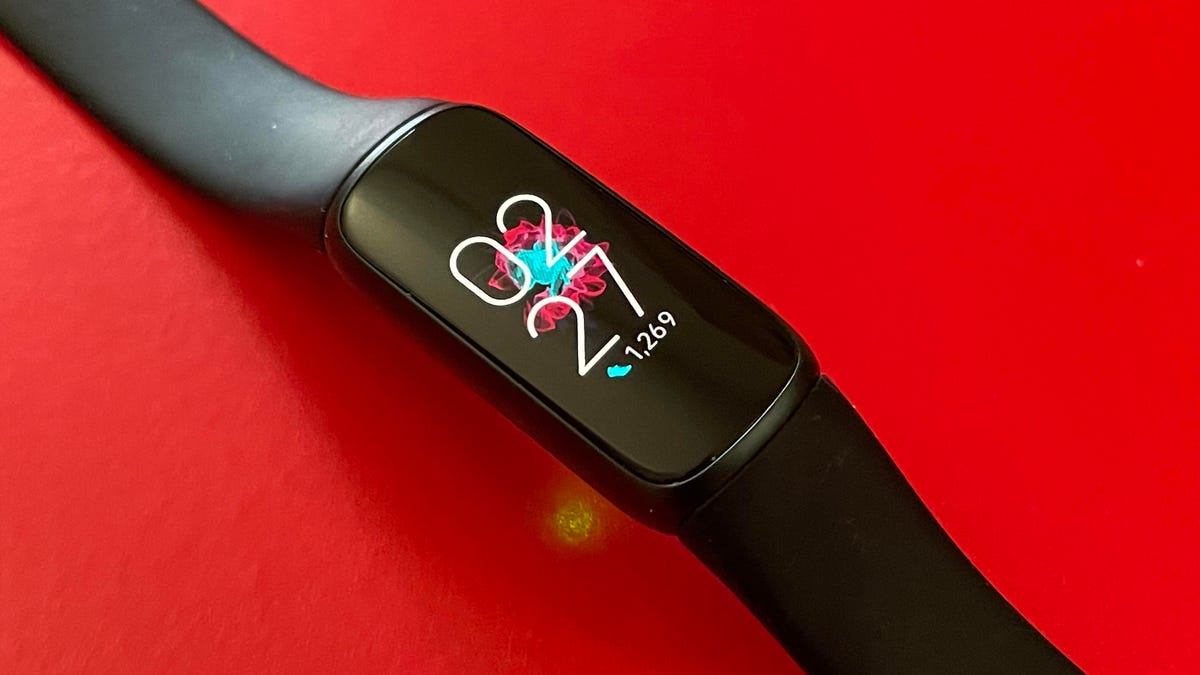Fitbit's new feature might tell you not to go to the gym after all
The new Daily Readiness Score uses activity, sleep and heart rate data to suggest whether recovery is needed, much like Oura and Whoop do.

The Fitbit Luxe is one of Fitbit's devices that will be compatible with the new Daily Readiness Score.
Fitbit devices already provide loads of data about our activity and sleep. Now certain Fitbit smartwatches and trackers will indicate when it's time to rest, too. The Google-owned wearable company on Tuesday began rolling out its Daily Readiness Score, a feature that gives you a grade suggesting whether you should exercise or recover.
Fitbit generates the score by examining how your recent sleeping habits, heart rate variability (the amount of time between each heartbeat) and activity compare with your personal baseline for these metrics. Fitbit announced the new feature alongside the Fitbit Charge 5 in August, but has just made it available now. It's for Fitbit Premium subscribers only and will work on the Fitbit Sense, Versa 3, Versa 2, Charge 5, Luxe and Inspire 2.
Fitbit's Daily Readiness Score is another sign that digital health companies are trying to fill a gap within the fitness tracker market: recovery. While popular devices from Apple, Samsung and others have largely focused on motivating you to move, few wearables prioritize rest and recovery aside from the Oura ring and the Whoop exercise tracking wristband. Recovery is crucial because it provides time for your muscles to heal between workouts and helps them grow.
Along with the score, Fitbit provides context about whether you're ready for a moderate or more intense workout. The higher the score, the better your readiness. So if you receive a score of 50, for example, the app might suggest that you plan for some moderate exercise without overdoing it. But if your Daily Readiness Score is 90, Fitbit will say you're ready to tackle today's workout.
Fitbit's Daily Readiness Score is intended to help you decide whether you should exercise or take it easy.
It also makes suggestions for how to approach activity based on your Daily Readiness Score. If your score is high, Fitbit will provide a personalized target for active zone minutes and recommended workouts. Those "active zone minutes" are essentially points you earn during exercise when your heart rate reaches a specific threshold. But on days when you receive a low score, Fitbit will make suggestions as to how to recover by surfacing content like yoga or meditation.
There are some conditions that must be met in order for the feature to work. You have to opt in within the Fitbit app and wear your device for at least four days before receiving your first score. You also must wear your device overnight since sleep is one of the factors Fitbit uses to generate the Daily Readiness Score. Fitbit says you can expect more personalized results after using the feature for 14 days.
However, I still haven't received my first score even though I've been wearing my Fitbit Sense for four days. Fitbit said some Fitbit device wearers encountered an issue with its service during the prerelease trial period, but that the Daily Readiness Score should be working normally at launch.
"Earlier today, we noticed that a limited number of users may have experienced an issue with Fitbit service, which could have impacted Daily Readiness score calculation for those who have early access," Fitbit said in a statement on Monday. "This has been resolved, but some users may not have gotten a score this morning. Tomorrow, when the service rolls out broadly, users should get a score as usual."
My colleague Lexy Savvides was able to successfully test the Daily Readiness Score feature after wearing her Charge 5 for a week. Below, you can see the exercise recommendations she received based on her score.
Fitbit's Daily Readiness Score is similar to a feature that the Oura ring has offered for a while. Similar to Fitbit's new metric, Oura's Readiness score suggests whether you should hit the gym or take a break based on bodily signals. Oura's score is based on factors such as activity, sleep, resting heart rate, heart rate variability and body temperature.
Oura also rates "readiness" across different levels, with a score of 85 or higher indicating you're ready for a rigorous workout and a score of between 70 and 84 suggesting that you've recovered enough for a moderate workout. A score below 70 suggests that you're not fully recovered and need to rest.
Whoop, meanwhile, has made a name for itself among athletes like LeBron James and Michael Phelps because of its focus on recovery and performance improvement rather than just quantifying activity and wellness. Whoop also uses data from your body as an indication of whether recovery is needed and measures how much strain you're putting on your body throughout the week.
Although Fitbit isn't the first wearable tech company to provide recovery statistics, the new Daily Readiness Score could help the company differentiate its devices from those made by Apple and Samsung, two of the industry's global leaders. That's especially important as the digital health and wellness space has become more competitive with tech giants expanding into new metrics such as body fat measurements, blood oxygen saturation levels and mental wellness.

